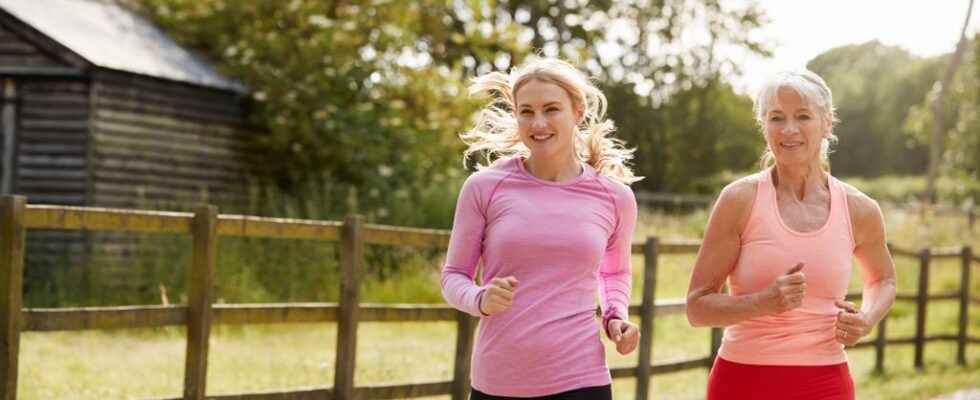Thanks to regular physical activity, senior study participants with cognitive impairment improved their thinking skills. So much so that their brains have even “rejuvenated”.
It has been proven that seniors who regularly engage in moderate physical activity reduce their risk of death. According to a published study in the journalAmerican Academy of Neurology last December, the benefits of sport would go even further, since it would also … rejuvenate the brain! Researchers have shown that physical activity improves the thinking skills of older people with dementia. At the end of six months of exercise, their tests were even equivalent to a reversal of aging … of almost ten years!
The study involved 100 people aged 65 on average. They did not have dementia per se, but had cognitive impairments – such as difficulty concentrating, making decisions, or remembering – as well as one or more risk factors for heart disease – such as heart disease. hypertension. All were sedentary before the start of the trials. The volunteers were divided into 4 groups: “physical exercise alone”, “diet alone” (the DASH), “physical exercise and diet”, “nutritional education”.
A reversal of aging linked to sport
Seniors assigned to exercise groups walked, run, or cycle for 45 minutes three times a week. At the start and end of the six-month study, the researchers additionally assessed the participants’ thinking skills, known as executive function. This executive function is a person’s ability to regulate their behavior, pay attention, organize themselves and achieve their goals.
In the end, these “new athletes” showed a significant improvement in their thinking skills compared to those who did not exercise. To illustrate, the authors indicate that the volunteers had, at the start of the trials, scores on executive function tests equivalent to those of a 93-year-old person. That is 28 years older than their actual age. After six months, that figure was 84 in the training and dieting group. In other words, the brain was nine years younger.
Further research is now needed with larger samples and over longer time periods to examine whether the improvements in capacity are sustainable, and what approaches are most effective.
Read also :
Loading widget
Subscribe to the Top Santé Newsletter to receive the latest news for free
